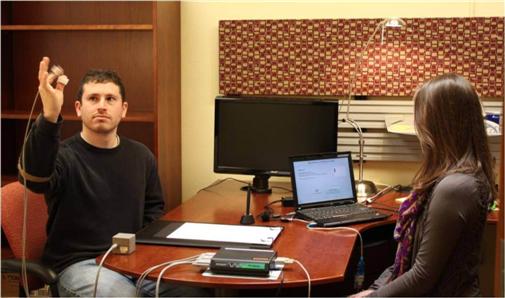Technology for the diagnosis and monitoring of neurodegenerative diseases in routine clinical practice
Overview
Major neurodegenerative conditions affect approximately 10 million people across the seven major markets (US, Japan, UK, France, Italy, Germany, Spain), and prevalence in China is predicted to be seven times that of the USA by 2030. Conventional diagnostic approaches for many neurodegenerative conditions are based on clinical observation, which, especially at early stages of disease, tend to be subjective, time consuming and unreliable. Likewise, monitoring of response to treatment, where the rate of improvement or deterioration may be modest, is difficult to quantify. Tools that provide straightforward, objective measures to identify neurodegenerative disease type and to quantify disease progression would allow appropriate treatment to be administered at an earlier stage. Health system resources could then be used more efficiently, and quality of life for the patient could be improved. With the advent of an increasing number of therapeutics that slow disease progression, early, accurate diagnosis and effective measurement of response to treatment have become more important than ever as factors that determine patient outcomes.
A diagnostic toolkit has been developed by Dr Smith's lab which provides straightforward, objective measures to identify neurodegenerative disease type, and to quantify disease progression. The toolkit uses evolutionary algorithms to diagnose, differentiate and monitor patients with Parkinson's disease with greater confidence than has previously been possible. A preliminary market assessment for the technology undertaken in 2010 estimated the market potential for technology in the seven major markets is a maximum of £1.9 billion/year, growing to £4 billion/year by 2050. Funding was used to help develop the technology from proof-of-concept stage, to the point where it is ready to be used in routine patient evaluation as well as new clinical studies.
The equipment was deployed in May 2013 to Rashid hospital, Dubai to measure Parkinson's patients with and without dementia and to Monash Medical Centre, Melbourne, Australia to study tremor and bradykinesia in Parkinson's patients. New clinical studies have been initiated in Leeds Community Healthcare NHS Trust for the monitoring of levodopa induced dyskinesia in patients in their own homes – April 2013, and in Leeds Teaching Hospitals NHS Trust for the monitoring of patients with Huntington’s disease and other dyskinesia – July 2013.
Findings from these and previous studies have been presented at a number of international conferences, including the IEEE's Congress on Evolutionary Computation 2013 in Cancún, and published in leading journals. Dr Smith has also been awarded a Royal Academy of Engineering Enterprise Fellowship to continue his work in this area.
A University spin-out company ClearSky Medical Diagnostics was incorporated on 30th July 2013. The company will market four products that will provide consultants with an objective assessment of symptoms to diagnose, differentiate and monitor a range of neurodegenerative conditions including Parkinson's disease and Alzheimer's disease. Patents filed in July 2013 protect all four products worldwide.
Outputs
Publications
- Alty, J.E., Jamieson, S., Lones, M.A., & Smith, S.L. (2012) How slow is too slow? Objective measurement of bradykinesia in Parkinson's disease using novel non-invasive devices. Proc. Int. Congress on Parkinson's Disease and Movement Disorders, 27, suppl. 1, S91-S92
- Lacy, S., Lones, M. A., Smith, S. L., Alty, J. E., Jamieson, D. R. S., Possin, K. L., and Schuff, N. (2013). Characterisation of Movement Disorder in Parkinson’s Disease using Evolutionary Algorithms. Proceedings of the 2013 Genetic and Evolutionary Computation Conference (GECCO). Blum, C. & Alba, E. (eds.). ACM Digital Library
- Lones, M. A., Smith, S. L., & Tyrrell, A. (2012). Evolving Computational Dynamical Systems to Recognise Abnormal Human Motor Function. -. Paper presented at 9th International Workshop on Information Processing in Cells and Tissues, Cambridge, United Kingdom
- Lones, M. A., Smith, S. L., Tyrrell, A., Alty, J. E., & Jamieson, S. (2013). Characterising Neurological Time Series Data using Biologically-Motivated Networks of Coupled Discrete Maps. Biosystems, 112(2), 94-101, doi: 10.1016/j.biosystems.2013.03.009
- Lones, M. A., Alty, J. E., Lacy, S., Jamieson, S., Possin, K., Schuff, N., & Smith, S. L. (2013). Evolving Classifiers to Inform Clinical Assessment of Parkinson's Disease. IEEE Transactions on Evolutionary Computation, (99), doi: 10.1109/TEVC.2013.2281532
Grants
- Stephen Smith, Royal Academy of Engineering, Enterprise Fellowship for S. L. Smith 'Diagnosing, Differentiating and Monitoring Neurodegenerative Diseases', £84,500
- Stephen Smith, Technology Strategy Board, ClearSky Medical Diagnostics - Health Economic assessment for monitoring the side-effects of Parkinson's medication and informing treatment, £7,200
Principal Investigator
Dr Stephen Smith
Department of Electronics
stephen.smith@york.ac.uk

